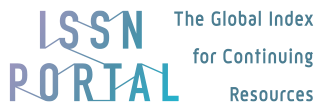Artificial intelligence international principles
DOI:
https://doi.org/10.63601/resmpu.2024.v1.n2.e-2107Keywords:
Artificial intelligence, democracy, human rights, accountabilityAbstract
This article outlines and analyses international principles for the development and use of artificial intelligence (AI), based on an analysis of international legislation on the subject from the Organisation for the Economic Co-operation and Development (OECD) and the Council of Europe. The discussion focuses on six main points: human development, human rights and democracy, transparency, safety, accountability and cooperation. Initially, it is emphasized that artificial intelligence only makes sense to exist if it contributes to reducing economic inequalities and respects the rule of law, our recognized rights and the regime of popular decision. The article explores the fundamental importance of transparency and explainability for those affected by AI, especially those who interact with it voluntarily or who act in a legal relationship. The robustness, integrity and safety of AI are addressed from the perspective of the system’s need for reliability in the face of the challenges presented by the sociotechnical context. Finally, it establishes the importance of means of holding wrongdoers accountable and the broad coope-
ration of public and private entities to achieve all these objectives. In short, the document discusses the relevance already recognized on the international arena of ethical and legal principles for the use of AI, so that technology can be a tool for promoting the common good and not a threat to individuals.
References
ABHIVARDHAN, A. Artificial intelligence ethics and international law. 2. ed. Delhi: BPB Publications, 2023.
ALA-PIETILÄ, Pekka; SMUHA, Nathalie A. A framework for global cooperation on artificial intelligence and its governance. In: BRAUNSCHWEIG, Bertrand; GHALLAB, Malik (org.). Reflections on artificial intelligence for humanity. Cham: Springer International Publishing, 2021. (Lecture Notes in Computer Science). v. 12600. p. 237-265. DOI: https://tinyurl.com/ymy3z32j .
ANGELOV, Plamen P.; SOARES, Eduardo A.; JIANG, Ricardo; ARNOLD, Nicolau; ATKINSON, Peter M. Explainable artificial intelligence: an analytical review. WIREs Data Mining and Knowledge Discovery, v. 11, n. 5, p. e1424, 2021.
BENOÎT-ROHMER, Florence; KLEBES, Heinrich. Council of Europe law towards a pan-European legal area. Strasbourg: Conseil de l’Europe, 2004.
BOYLE, Alan E.; CHINKIN, Christine. The making of international law. Oxford, New York: Oxford University Press, 2007.
CHANDER, Bhanu; JOHN, Chinju; WARRIER, Lekha; GOPALAKRISHNAN, Kumaravelan. Toward trustworthy artificial intelligence (TAI) in the context of explainability and robustness. ACM Computing Surveys, jun. 2024. [Online]. DOI: https://doi.org/10.1145/3675392 . Acesso em: 15 jul. 2024.
CoE – COUNCIL OF EUROPE. Explanatory Report to the Council of Europe Framework Convention on Artificial Intelligence and Human Rights, Democracy and the Rule of Law: Council of Europe Treaty Series - No. [225]. Vilnius: Council of Europe, 2024a.
CoE – COUNCIL OF EUROPE. Framework Convention on Artificial Intelligence and Human Rights, Democracy and the Rule of Law. 2024b. Disponível em: https://tinyurl.com/5xdv2k9s. Acesso em: 20 maio 2024.
ELKIN-KOREN, Niva; PEREL, Maayan. Separation of functions for ai: restraining speech regulation by online platforms. Lewis & Clark Law Review, v. 24, 2020. DOI: http://dx.doi.org/10.2139/ssrn.3439261 .
EUROPEAN COMMISSION. Artificial Intelligence for Europe. Brussels: European Comission, 2018.
FOSCH-VILLARONGA, Eduard; POULSEN, Adam. Diversity and inclusion in artificial intelligence. In: CUSTERS, Bart; FOSCH-VILLARONGA, Eduard (org.). Law and artificial intelligence. The Hague: T.M.C. Asser Press, 2022. (Information Technology and Law Series). v. 35, p. 109-134. Disponível em: https://tinyurl.com/2mycnhzm. Acesso em: 21 jun. 2024.
GREENSTEIN, Stanley. Preserving the rule of law in the era of artificial intelligence (AI). Artificial Intelligence and Law, v. 30, n. 3, p. 291-323, 2022. DOI: https://link.springer.com/article/10.1007/s10506-021-09294-4.
OECD. Recommendation of the Council on Artificial Intelligence, OECD/LEGAL/0449. 2024.
SANDS, Philippe. The “greening” of international law: emerging principles and rules. Indiana Journal of Global Legal Studies, v. 1, n. 2, 1994. [Online].Disponível em: https://tinyurl.com/34cah3ku. Acesso em: 21 jun. 2024.
ÜNVER, H. A. Artificial intelligence (AI) and human rights: using AI as a weapon of repression and its impact on human rights. Brussels: European Union, 2024.
VINUESA, Ricardo; AZIZPOUR, Hossein; LEITE, Iolanda; BALAÃO, Madalena; DIGNUM, Virgínia; DOMISCH, Sami; FELLÄNDER, Anna; LANGHANS, Simone Daniela; TEGMARK, Max; NERINI, Francisco Fuso. The role of artificial intelligence in achieving the Sustainable Development Goals. Nature Communications, v. 11, n. 1, p. 233, 2020.
WILLIAMS, Rebeca; CLOETE, Ricardo; COBBE, Jennifer; COTTRILL, Caitlin; EDWARDS, Pedro; MARKOVIC, Milão; NAJA, Imã; RYAN, Frances; SINGH, Jatinder; PANG, Wei. From transparency to accountability of intelligent systems: Moving beyond aspirations. Data & Policy, Cambridge, v. 4, p. e7, 2022. DOI: https://doi.org/10.1017/dap.2021.37.
YEUNG, Karen. Recommendation of the Council on Artificial Intelligence (OECD). International Legal Materials, v. 59, n. 1, p. 27-34, 2020. [Online].
ZALNIERIUTE, M. Burning Bridges: The automated facial recognition technology and public space surveillance in the modern state. Science and Technology Law Review, v. 22, n. 2, p. 284-307, 2021.
Downloads
Published
How to Cite
Issue
Section
License
Copyright (c) 2024 Journal of the MPU School for Higher Studies

This work is licensed under a Creative Commons Attribution-NonCommercial 4.0 International License.
Os textos estão sob Licença Creative Commons – Atribuição-Não Comercial 4.0.
É autorizada a reprodução total ou parcial para fins não comerciais, desde que inserida a fonte e indicada a autoria do texto.




 Journal of the MPU School for Higher Studies (RESMPU)
Journal of the MPU School for Higher Studies (RESMPU)



